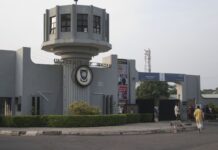A report by a Pontifical Foundation, Aid to Church in Need (ACN), has indicted Nigeria and 13 other countries for heightened religious intolerance in the past two years.
The ACN, in its latest ‘Religious Freedom in the World 2012 Report’ (RFR), stated that religious intolerance worsened in Nigeria, Mozambique, Burkina Faso, Cameroon, Chad, Mali, the Democratic Republic of Congo, and other African countries due to a dramatic increase in the presence of jihadist groups on the continent.
It further stated that behind the violent conflicts are those who have instrumentalised religion in the search for power.
The report highlighted the use of surveillance, based on artificial intelligence and facial recognition technologies by some state actors, to violate religious freedom.
“Over the last two years, jihadist groups have consolidated their presence in sub-Saharan Africa and the region has become a haven for over two dozen actively operating and increasingly cooperating groups in 14 countries, including affiliates of the Islamic State and al-Qaeda.
“The development of these affiliates has occurred within an alarmingly short timeframe, and the pattern is familiar. Attacks by local criminal gangs, spurred on by Salafi jihadist preachers, progress from the sporadic and arbitrary to the ideological and targeted.
“Persecution based on faith worsened particularly in Nigeria, Mozambique, Burkina Faso, Cameroon, Chad, Mali, the Democratic Republic of Congo, and other African countries.
“Behind the violent conflicts, whether in Syria, Yemen, Nigeria, the Central African Republic or Mozambique, to mention only a few countries, are those in the shadows who, manipulating the deepest convictions of humanity, have instrumentalised religion in the search for power,” the report said.
It also documented an increase of “sexual violence used as a weapon against religious minorities, crimes against women and girls who are abducted, raped and forced to convert.”
Findings by analysts at the Pontifical Foundation also said, though persecution, hate crimes, and religiously motivated violence have assumed a global dimension between 2018 and 2020, the international community’s response can be categorized as “too little, too late.”






















































